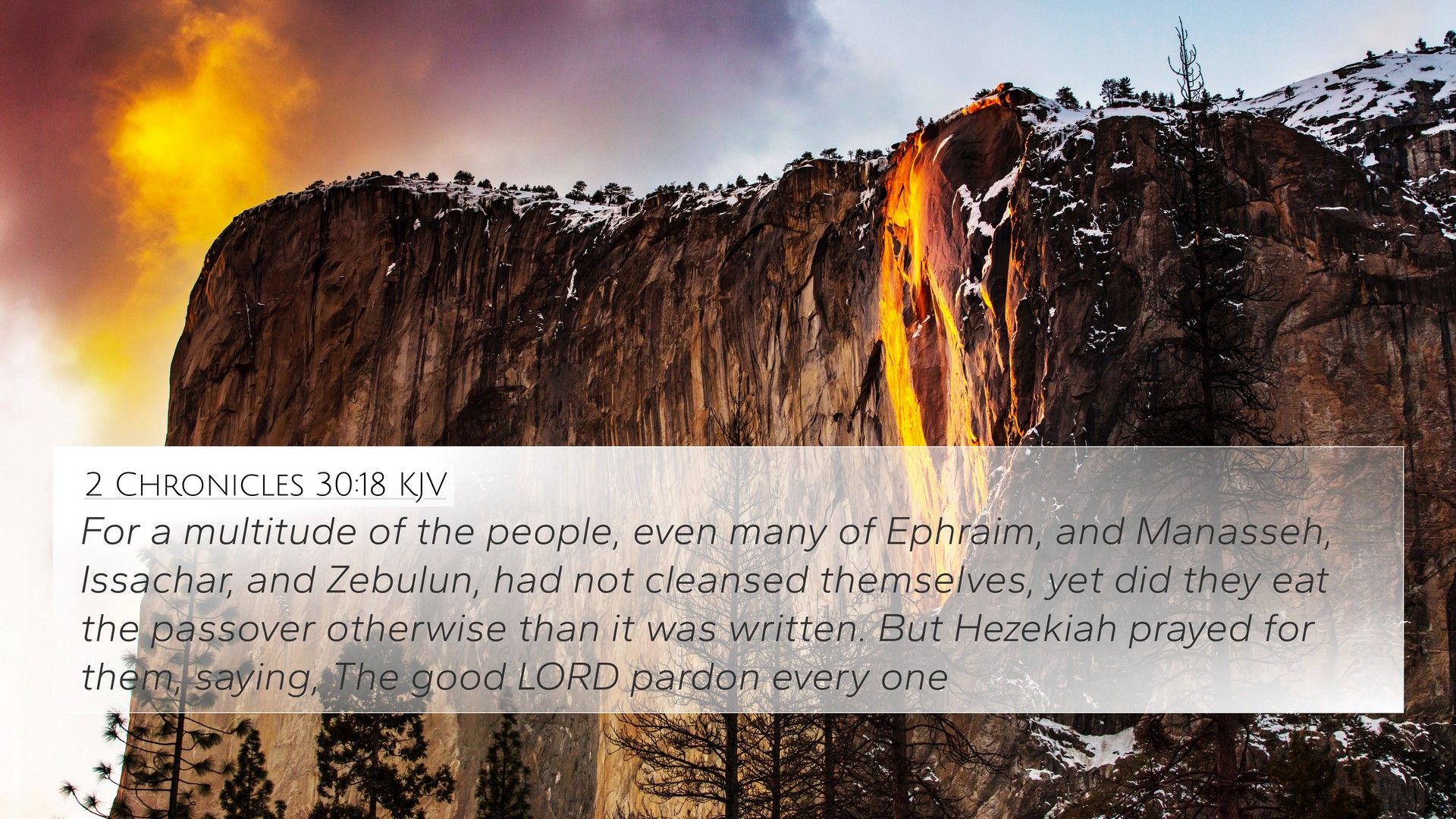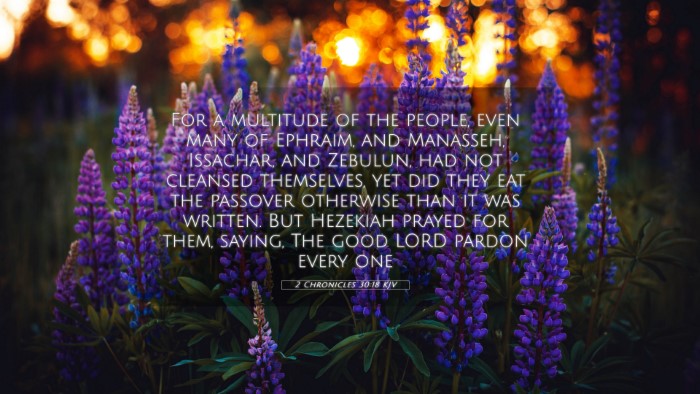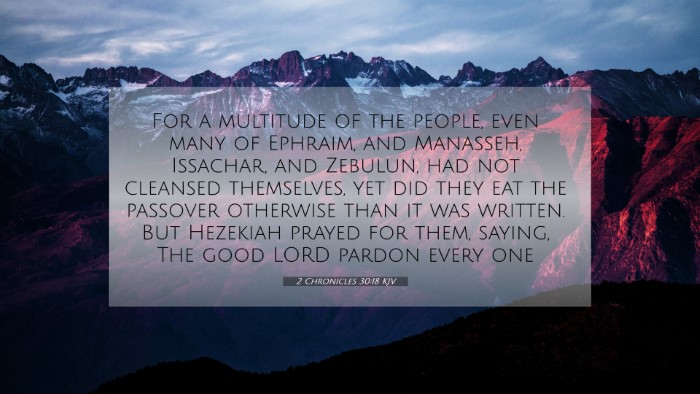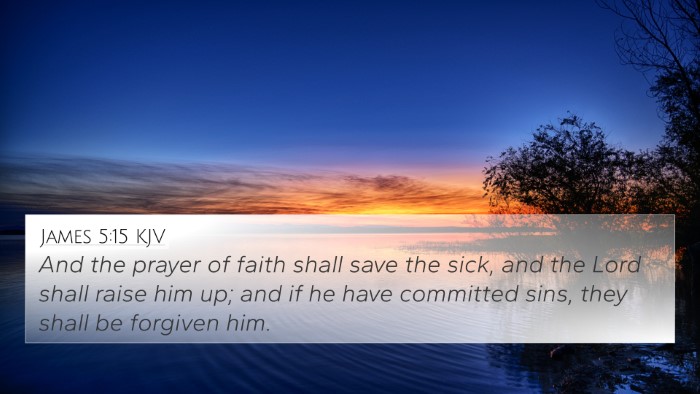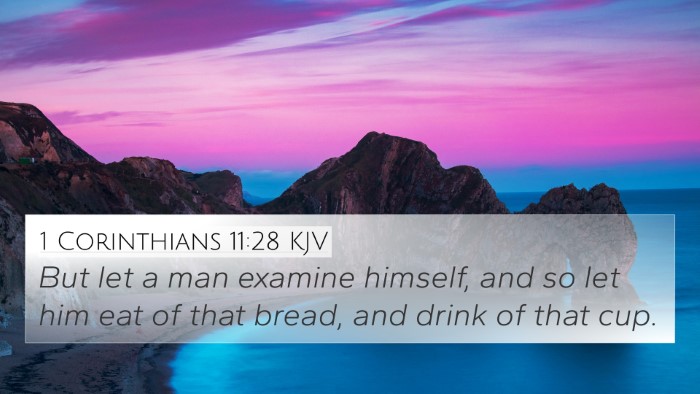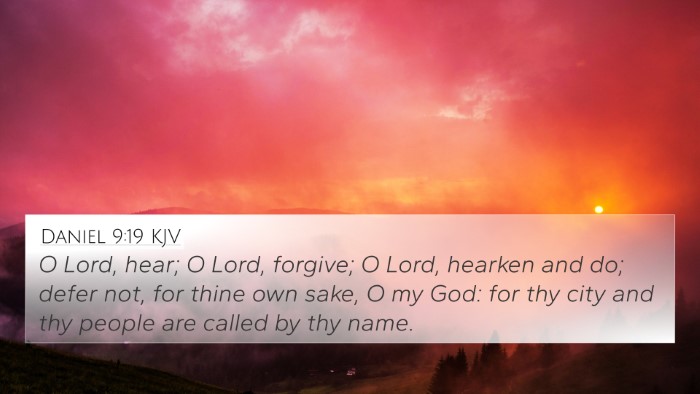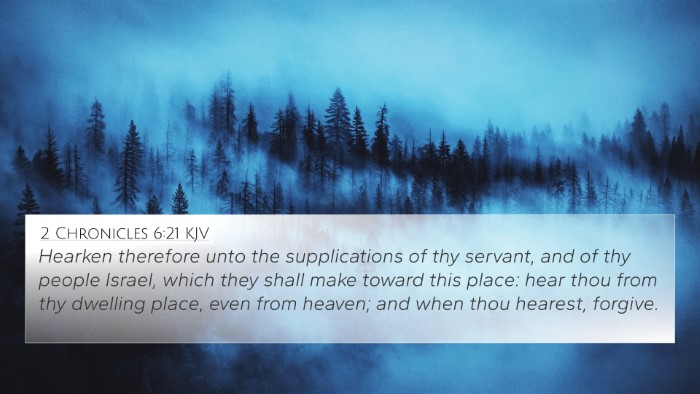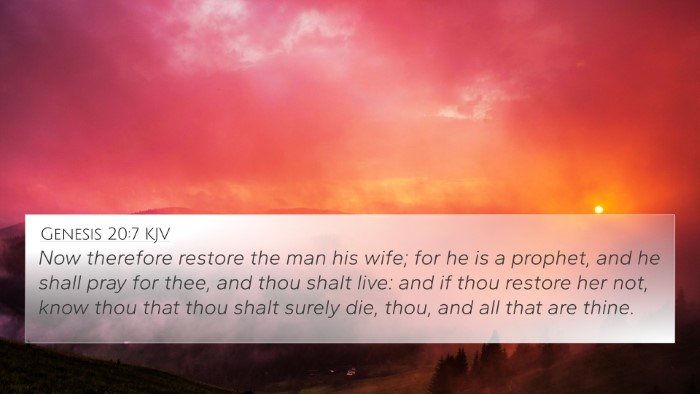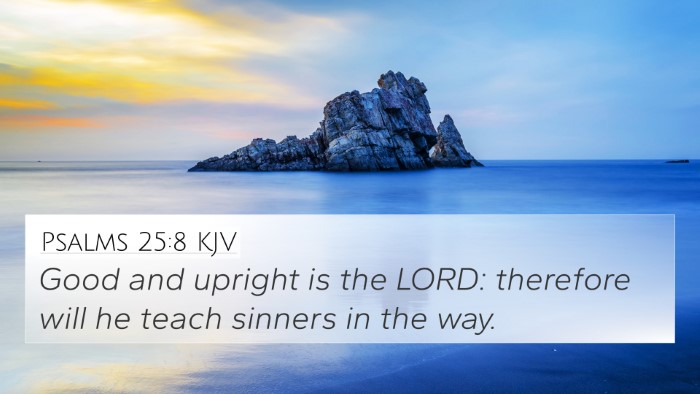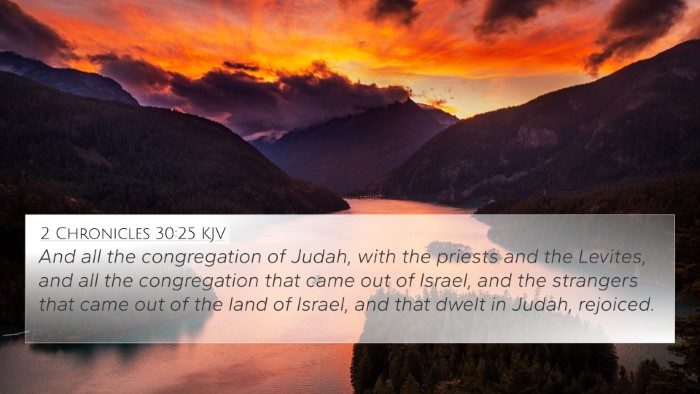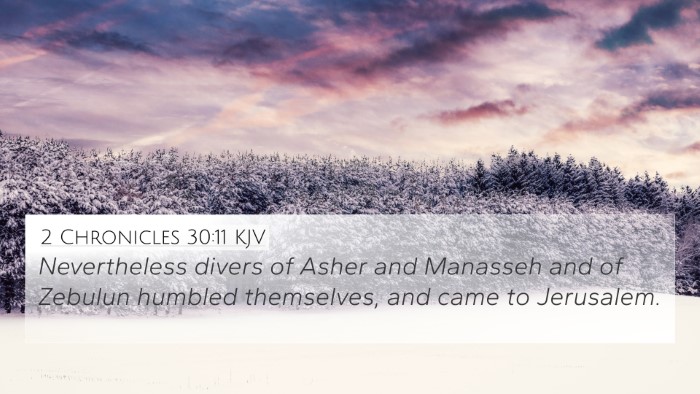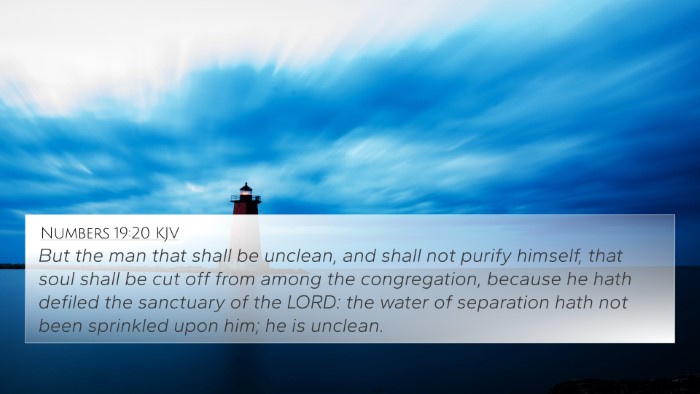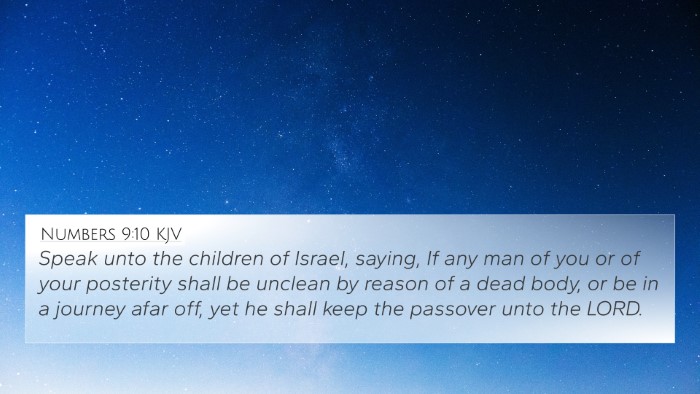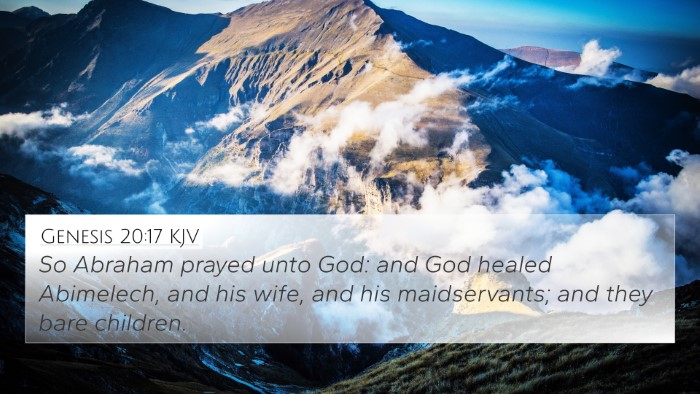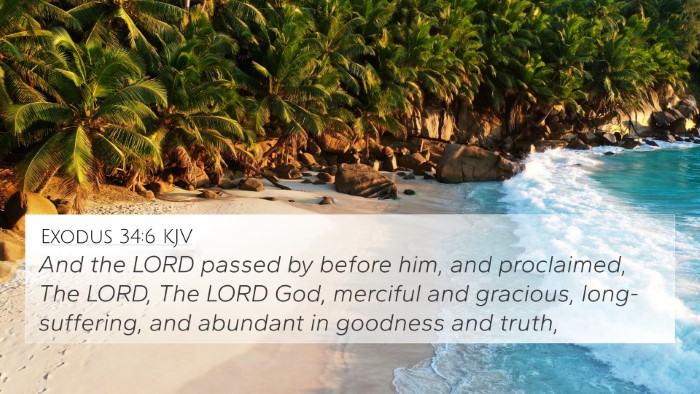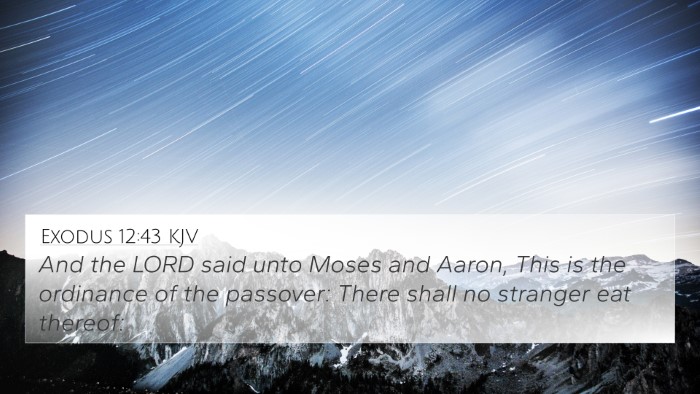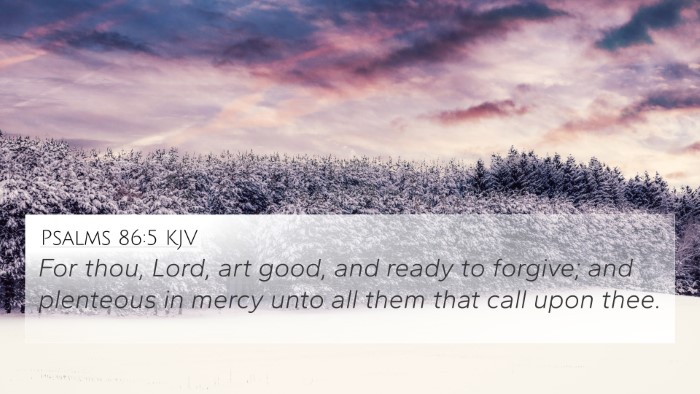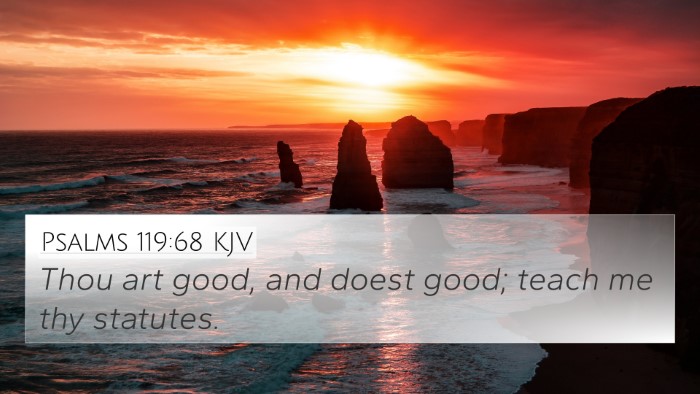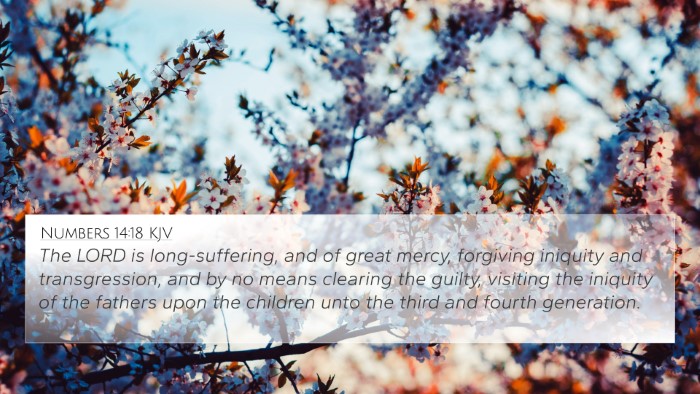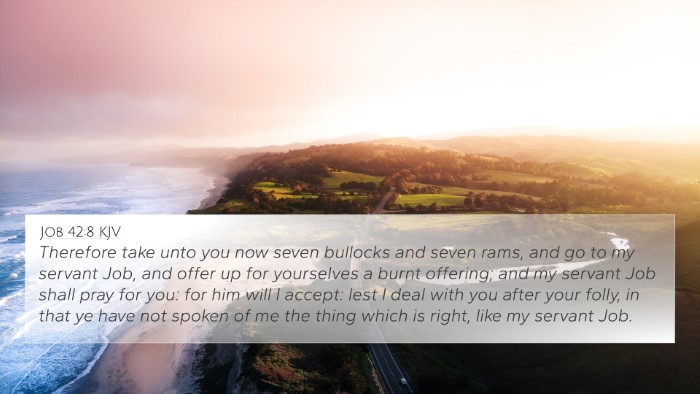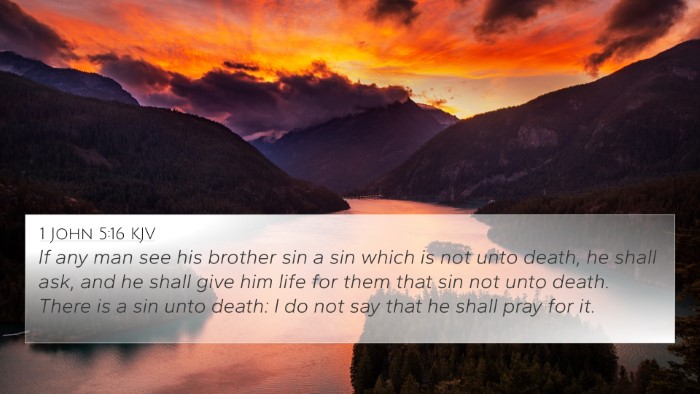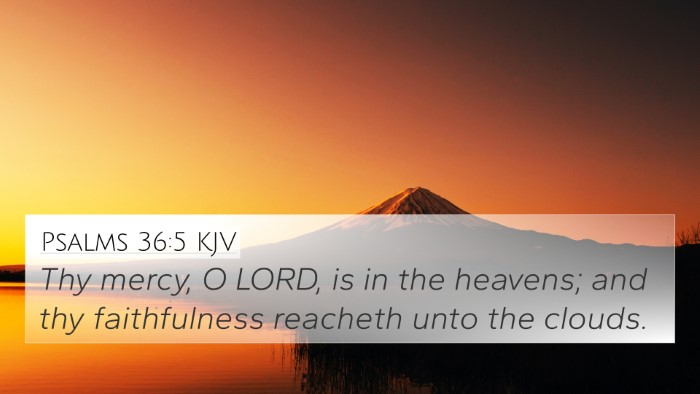Understanding 2 Chronicles 30:18
Verse Text: “For a multitude of the people, even many of Ephraim, and Manasseh, Issachar, and Zebulun, had not cleansed themselves, yet did they eat the passover otherwise than it was written. But Hezekiah prayed for them, saying, The good Lord pardon every one
Summary of Insights
This verse illustrates a critical moment among the Israelites as they prepared for the Passover, a central and sacred festival in their tradition. The passage reveals the discrepancy between the people's actions and the prescribed requirements of the law regarding the festival. Despite their unclean state, they partook of the Passover, prompting King Hezekiah to intercede on their behalf through prayer. This highlights themes of grace, mercy, and the importance of spiritual cleanliness.
Historical Context
King Hezekiah's reign marked a significant religious revival in Judah. He sought to restore proper worship and adherence to God's commandments, which had been neglected. The gathering of the people from the northern tribes, including Ephraim and Manasseh, indicates a desire for unity and restoration among the divided kingdom of Israel. The verse captures the tension between ritual adherence and heartfelt devotion to God's commands.
Theological Implications
1. Importance of Cleansing: The act of cleansing before the Passover was not merely ritualistic but signified a deeper spiritual condition—separation from sin and preparation to receive God’s grace.
2. God’s Mercy and Intercession: Hezekiah’s prayer reflects the nature of God as one who is willing to overlook transgressions when approached with sincerity. It emphasizes God’s readiness to pardon those who seek Him, regardless of their failures.
Cross-References
- Exodus 12:19-20: Discusses the necessity of sanctification before partaking in the Passover.
- Numbers 9:10-11: Provides instructions for those who were unable to keep the Passover at the prescribed time.
- Psalm 51:17: Highlights the significance of a contrite spirit over mere ritual compliance.
- Isaiah 1:18: God invites His people to reason together, representing His willingness to forgive.
- Luke 22:19: Jesus establishes the New Covenant during the Passover meal, connecting Old Testament themes of sacrifice to New Testament grace.
- John 3:16: The overarching theme of God’s love and grace through Jesus Christ reinforces the message of mercy in Hezekiah’s prayer.
- Hebrews 9:28: Discusses Christ's sacrifice, and its connection to the annual Passover observance.
Thematic Connections
This passage invites a comparative analysis of themes such as grace, intercession, and the importance of community worship. The actions of the people, their need for cleansing, and Hezekiah's prayer echo throughout the scriptures, offering a rich tapestry for understanding God’s redeeming work across both Old and New Testaments.
Application for Today
In reflecting on this verse, believers are encouraged to consider their personal spiritual readiness when approaching sacred acts of worship. It also serves as a reminder of the grace available to us through prayer and the intercessory work of Christ, as we are all in need of pardon and cleansing.
Tools for Further Study
To delve deeper into the scripture and its connections, consider utilizing the following resources:
- Bible cross-reference guide
- Comprehensive Bible cross-reference materials
- Cross-reference Bible study methods
- Bible concordance for identifying related verses
Conclusion
2 Chronicles 30:18 serves as a profound reminder of the grace of God in response to our shortcomings. Just as Hezekiah prayed for the people, believers today can find assurance in the merciful nature of God, who invites all to return to Him in sincerity and truth.
